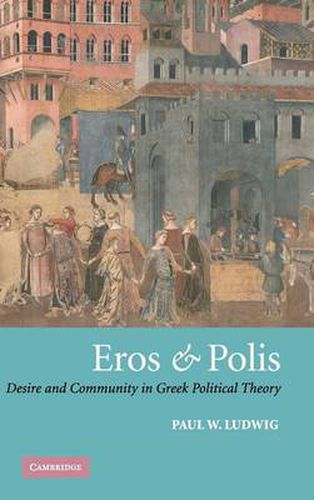Readings Newsletter
Become a Readings Member to make your shopping experience even easier.
Sign in or sign up for free!
You’re not far away from qualifying for FREE standard shipping within Australia
You’ve qualified for FREE standard shipping within Australia
The cart is loading…






Eros and Polis examines how and why Greek theorists treated political passions as erotic. Because of the tiny size of ancient Greek cities, contemporary theory and ideology could conceive of entire communities based on desire. A recurrent aspiration was to transform the polity into one great household that would bind the citizens together through ties of mutual affection. In this study, Paul Ludwig evaluates sexuality, love, and civic friendship as sources of political attachment, and as bonds of political association. Studying the ancient view of eros recovers a way of looking at political phenomena that provides a bridge, missing in modern thought, between the private and public spheres, between erotic love and civic commitment. Ludwig’s study thus has important implications for the theoretical foundations of community.
$9.00 standard shipping within Australia
FREE standard shipping within Australia for orders over $100.00
Express & International shipping calculated at checkout
Eros and Polis examines how and why Greek theorists treated political passions as erotic. Because of the tiny size of ancient Greek cities, contemporary theory and ideology could conceive of entire communities based on desire. A recurrent aspiration was to transform the polity into one great household that would bind the citizens together through ties of mutual affection. In this study, Paul Ludwig evaluates sexuality, love, and civic friendship as sources of political attachment, and as bonds of political association. Studying the ancient view of eros recovers a way of looking at political phenomena that provides a bridge, missing in modern thought, between the private and public spheres, between erotic love and civic commitment. Ludwig’s study thus has important implications for the theoretical foundations of community.